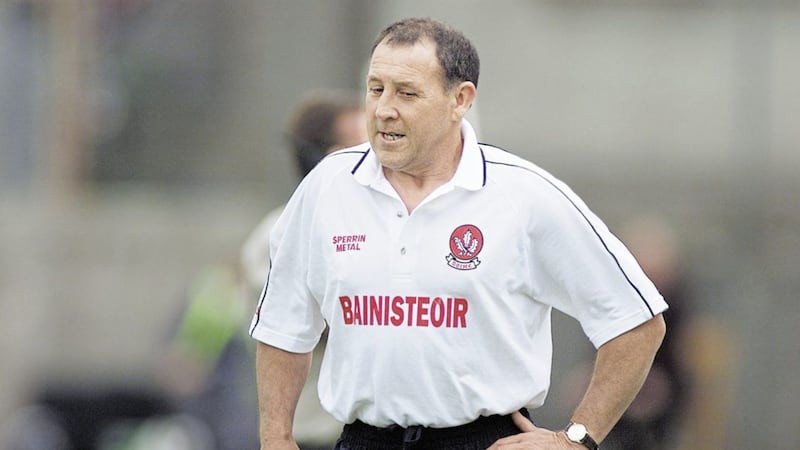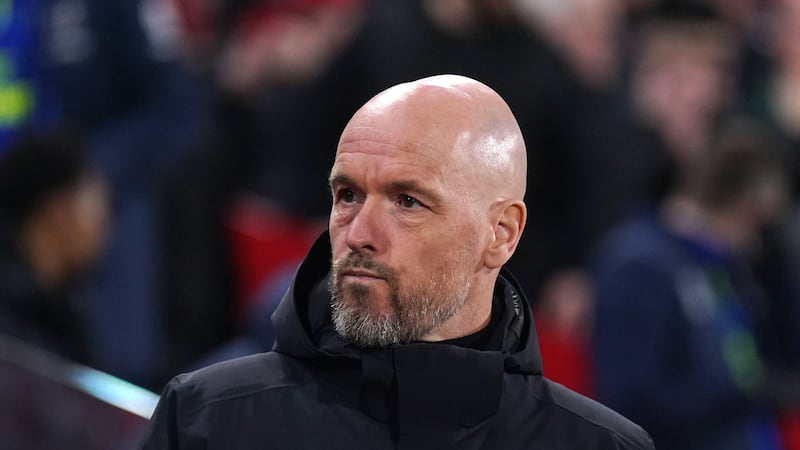AS a rookie reporter, I was nervous ringing Eamonn Coleman. If you got him on the phone in between laying bricks somewhere down the country he would make the first few minutes of the conversation unbearable.
He was generally suspicious of journalists but in a jocular way, if that makes sense. He would tend to ask more questions of the reporter than the other way round.
He hated trite questions too. You had to be on top of your game when you rang Eamonn.
Looking back, you’d picture him setting down his trowel thick with cement and having a bit of harmless fun with you.
After overcoming the first few, painful minutes Eamonn would play ball, give you a few inimitable lines on Gaelic football in his unmistakable south Derry drawl.
I recall him holding court on the Casement Park turf (remember Casement?) on a sunny Sunday afternoon after his Cavan side had beaten Down in the Ulster Championship.
Even though he was the one surrounded by tape-recorders, it was reporters who felt intimidated.
“Before we start boys,” he said, “I want £50 from you, you, you and you…”
He had us eating out of his hand.
He made it clear on a few occasions that reporters knew “nathan’ about futball’ – but we still liked him. How could you not like Eamonn Coleman?
I wasn’t around to report on the ‘Boys of ‘93’.
By the time I entered sports journalism, Eamonn was enjoying his second stint as Derry manager before he took a punt on Cavan.
I became friendly with his assistant, Marty McElkennon, during those later years.
Between ’98 and ’07, Coleman and McElkennon were joined at the hip.
“He was very good to me,” says McElkennon.
“He was a good friend and someone I trusted. He was a brilliant character. When you look at Gaelic football now there’s maybe not enough of that about. Everything’s got very serious.”
“Eamonn was a genius. He was a genius at motivating people. Now, in that Derry team you had players that were ‘brickies’ and professional people and Eamonn was able to get through to every one of them. He had all of those boys eating out of his hand.”
The last time I seen Eamonn was in the Healy Park stand in Omagh on the day Paddy Crozier’s Derry side ambushed defending All-Ireland champions Tyrone in '06.
Eamonn had been suffering cancer but that day he never looked as good.
It later emerged that Crozier – his club-mate and cousin – invited him to address the Derry players in the changing room.
A combination of good tactics and a bit of Coleman’s magic dust delivered an unlikely Derry win.
A year later, Eamonn was gone, aged 59, taken from this world far too soon.
“I think he had still so much to give in life and in Gaelic football,” says McElkennon.
“He came up to my house and I remember he said that if he got a second chance he was going to do things differently, enjoy life a bit more, not work as much, go on more holidays. All of a sudden the cancer came back again.”
Journalist Maria McCourt, a long-time employee of Belfast Media Group, always wrote with a lightness of touch that made her peers green with envy.
You’d read her work and feel immediately demoralised by its effortlessness.
Maria was Coleman's niece and Goddaughter.
For a long time, we knew Maria had sat down and recorded many hours of conversations with her uncle with the vague notion of writing the 1993 All-Ireland winning manager’s autobiography.
It was at Eamonn’s request Maria sat down with a tape-recorder.
For the last number of years, Maria was chided more than once about the autobiography that was never going to be written.
Maria certainly didn’t rush the thing. But she finally took every word of her uncle’s off tape and will launch his memoir, entitled ‘The Boys of ‘93 – Derry’s All-Ireland Kings’, next Friday in Belfast.
The book was worth waiting for.
The first triumph of this engaging memoir is that you can hear Eamonn Coleman’s voice on every page.
Ghost-writing is an innate skill in itself.
You don’t feel or sense the author’s presence at any time because it is written in simple language that captures the essence of Coleman.
If you could say something in three words, that’s the amount Eamonn would use.
The opening chapters lull you into a false sense of security with Coleman speaking about family life, his love of football and working in England.
The book gets better with every page.
And then it happens.
Boom!
The old wounds of Derry’s civil war are re-opened where Coleman revisits the period when he was unceremoniously sacked by the county board - a year after guiding the county to their first – and last – All-Ireland title in '93.
Two chapters in particular - ‘Backroom Betrayal’ and ‘Family Matters’ - hit the reader like two tsunamis. Nothing or nobody is spared.
‘Backroom Betrayal’ is Coleman’s version of his sacking. ‘Family Matters’ is his son Gary’s version.
The fury is such in these two chapters you come away surprised that the pages’ edges aren’t singed by the injustice felt by the pair.
This is Gaelic football’s equivalent of The Boston College tapes and Coleman roaring beyond the grave.
Just when the memoir finds an even temper again, off it goes, in silent rage, when Gary Coleman recounts how his father was dismissed back in late ’94.
If anything, the All-Ireland winning defender’s account is more hard-hitting as he recalls the weeks and months after Coleman’s unsavoury departure from the Oak Leaf post and the subsequent battles he faced upon his return to county duty.
‘The Boys of ‘93 – Derry’s All-Ireland Kings’ is a compelling read for Gaels far beyond the borders of Derry.
There is something ghostly and brilliant about Coleman’s memoir, impeccably told by McCourt.
***The Boys of ‘93 – Derry’s All-Ireland Kings’ will be launched at Waterstones, Belfast on Friday September 14 (6.30pm), with further launches to be confirmed.









